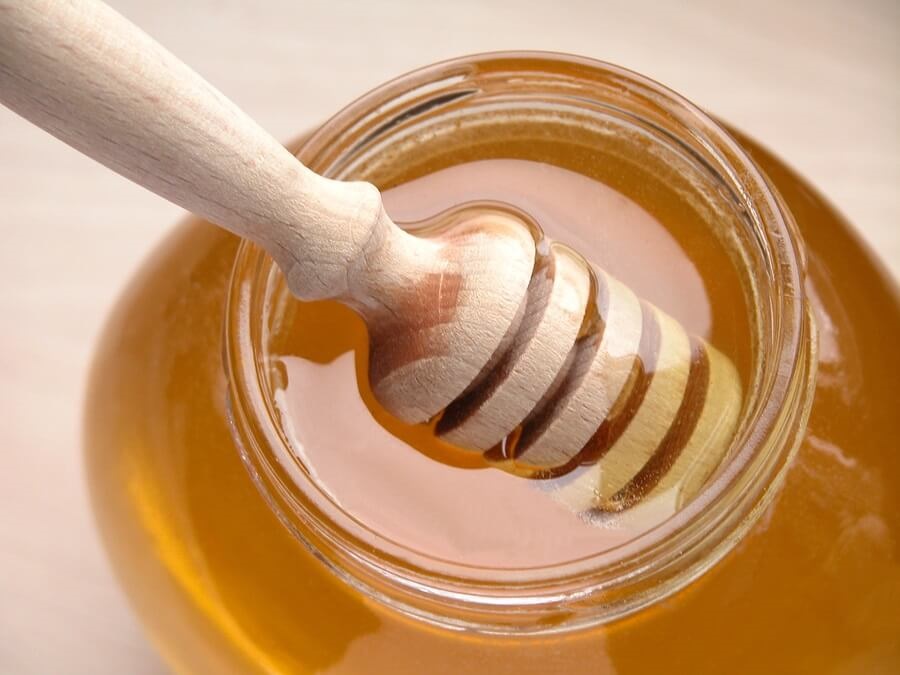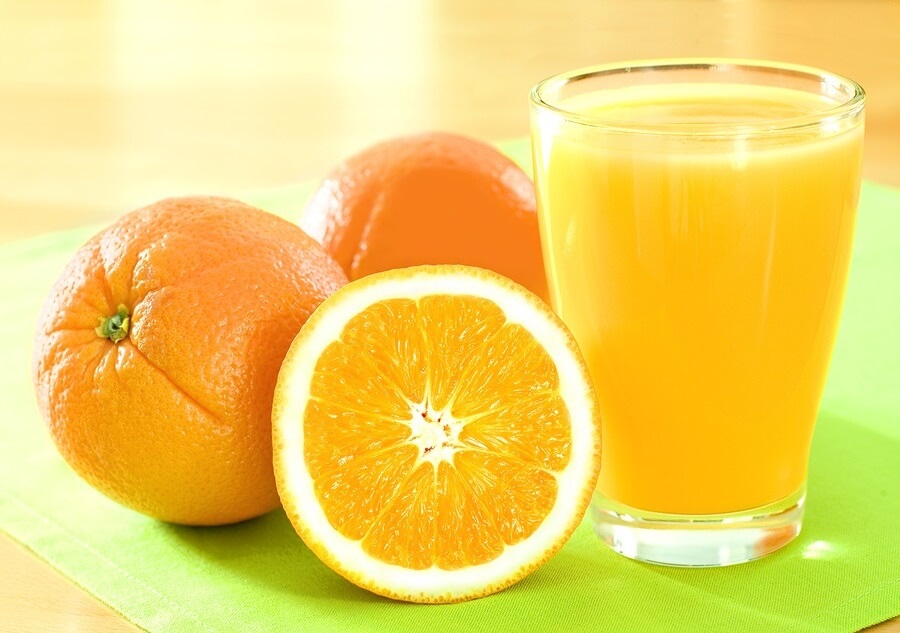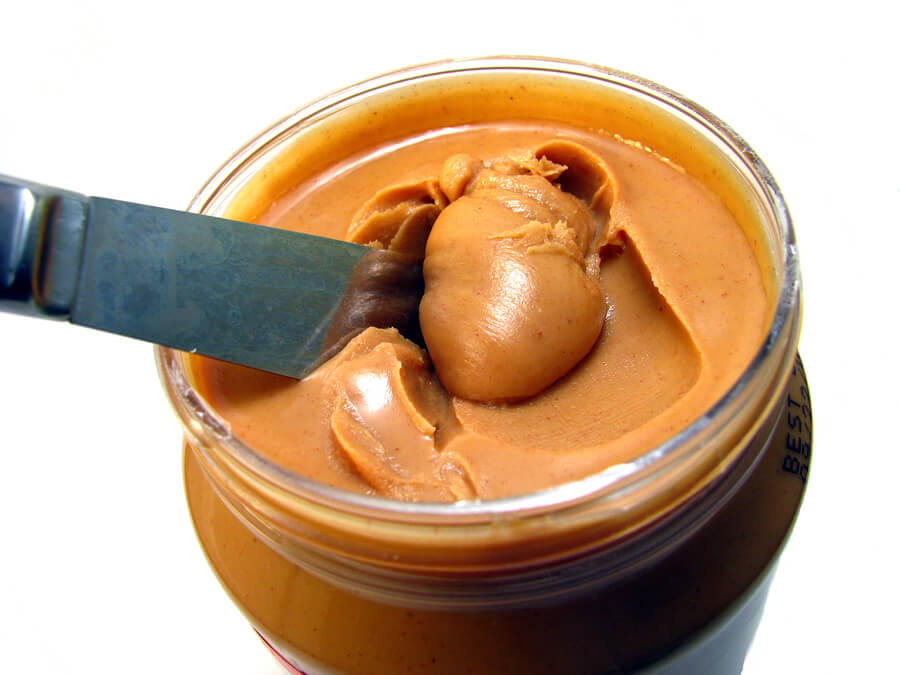Foods Not to Feed an Infant
According to the CDC, you can start introducing solid foods to your baby at around 6 months old. As long as they are receiving a balanced diet and a variety of nutrient-enriched foods, most vegetables, fruits, proteins, and grains. When it comes to more allergenic foods, it is best to introduce them after other baby-friendly foods. Always consult your pediatrician with concerns.
Growing babies soon start to show interest in trying new foods, and it's normal to want to introduce them to new tastes and textures. But not all foods are safe for your baby. Here is a list of foods you should avoid feeding your baby during the first year of growth.
More: Can You Eat Thanksgiving Turkey While Pregnant?
Pureed Foods vs Finger Foods
Babies are typically introduced to solid foods around six months of age. For newborns and babies less than six months old, solid foods may pose a choking hazard. So for young babies, many parents will turn to baby pureed foods. Pureed foods are softer than finger foods and easier on a baby's digestive system. However, some parents turn to baby-led weaning which can also be a great option to introduce your little one to solid foods.
Honey

Infants under a year old should not be fed any form of honey (raw, baked, or cooked). Honey is bad for babies because it can harbor Clostridium botulinum, which can produce botulinum spores. These spores secrete toxins that can lead to muscle weakness, poor sucking, a weak cry, constipation, decreased muscle tone, and even paralysis in young infants. An infant's intestinal tract isn't strong enough to fight off these spores and toxins.
Infant botulism can be prevented by avoiding raw honey and avoiding contact with soil contaminated with the same C botulinum spores. This is rare and mostly found at agricultural sites in Utah, California, or Pennsylvania.
Cow's Milk

Stick to breast milk or formula until your child's first birthday. A child under the age of one can't digest the enzymes and proteins in cow's milk, and certain minerals in it can cause damage to your baby's kidneys. This is also true for certain dairy products such as cottage cheese. Also, unlike breast milk or formula, cow's milk doesn't provide all the proper nutrients for a growing infant. So if you are breastfeeding or if you are bottle feeding with breast milk or infant formula then keep doing so.
Egg Whites

Don't feed egg products to a child under the age of one, to avoid an allergic reaction or allergies in the future. While the proteins in egg yolks are seldom a source of allergens, the proteins in egg whites may cause allergic reactions. By the age of five, a child normally outgrows the potential for an allergic reaction to egg whites.
Citrus

Avoid feeding citrus fruits and juices to your baby for the first couple of months. These foods are high in Vitamin C and acid, which can cause an upset tummy and/or acid reflux in your baby. Remember, their digestive system is still developing.
Seafood/Shellfish

Another potential allergen for babies is seafood, and particularly shellfish. Talk to your pediatrician before feeding your baby boneless fish -- even tuna. Do not give any sort of shellfish (such as shrimp, clams, swordfish, mackerel, or crabmeat) to your baby until it's been discussed.
Wheat

Due to allergens in wheat, it is best to wait until your baby is one, two, or even three years old before introducing it into your baby's diet. If you have checked with your pediatrician and are sure that your baby hasn't had an allergic reaction to rice, oats, or barley, you may try introducing wheat at the age of eight or nine months.
Large Chunks of Food
It is widely recommended that you feed your child breast milk or formula for the first four to six months. Once you start baby on solids, pea-sized foods are safest, to prevent choking. Make sure that vegetables are diced and cooked up soft, and cut fruits into quarters to avoid them getting stuck in your child's throat. Meats and cheese should also be cut into very small pieces or shredded.
Soft, Sticky Foods
While most soft foods are good for young babies, some soft foods should be avoided. Sticky foods like jellies and marshmallows should not be fed to a baby before six months as these foods can get stuck in a baby's throat and block the child's airway.
Small, Hard Foods
Foods like whole nuts, popcorn, whole grapes, raw vegetables, raisins, candies, dried fruits, seeds, or any other small, hard food should not be given to a baby. They are all choking hazards and can easily become lodged in your baby's throat. Any food you give your baby should be diced into small bits and cooked until soft.
Fruits

Below is some insight on certain fruits that many parents have questions about feeding their baby.
- Strawberries and raspberries: Many berries are packed with vitamin C and are good for babies and young children. The American Academy of Pediatrics that you hold off introducing these fruits until after they have tried other solids first.
- Pineapple: Pineapple is considered a safe food for your baby to eat. However, it is a firm fruit and should be sliced into thin strips since it can be a choking hazard when cubed.
- Melon: Watermelon is a good example of a first fruit you can offer to your baby. It is soft, easy to chew, and full of vitamins. It is made up of mostly water so it is also great for hydration.
- Papaya: This is a superfood that is super healthy and great for your baby. The recommendation is to wait to introduce it to your little one until they are 7 or 8 months old.
Vegetables

Vegetables are healthy options for kids, but when is the right age for babies to start eating their veggies? Here is a list of veggies and produce that parents have questions about. You can find below whether or not they are safe to give to your baby.
- Spinach: Believe it or not, raw spinach is full of nitrates. This is not to be confused with synthetic nitrates but is still not good to give much to little ones. It is recommended that if you give them spinach, make sure it is cooked and pureed.
- Lettuce: This can be hard for your baby to chew, so it's best to wait until they are between 9 months and 1 year old.
- Peas: Green peas are a great starter food. They are easy to pick up, offer a new texture, are small enough to avoid choking and can be pureed.
- Onions: Many parents add cooked onions to homemade baby food. They are full of vitamin C and can be introduced between 6 and 8 months old.
- Garlic: If you cook frequently then you know that garlic can add a whole new flavor to certain foods. You can cook down and add a small amount to your baby's food between 6 and 8 months old.
- Sweet Potatoes: This is another great first solid. Soft, cooked sweet potato cut into chunks is perfect for a 6-month-old.
- Potatoes: These are considered starchy vegetables so even though they are safe to give to your baby, you will want to do it in moderation.
Meats

Introducing meat to your baby's diet can happen after starting solids, which is usually around 6 months. Poultry and lean beef are fine to give your little one in small amounts. Below are two types of meat that should be avoided.
- Hotdogs: Hotdogs are a choking hazard. It is not recommended to give them to young children under 4 years of age. When they are old enough, they can be thinly sliced or minced.
- Bacon: It is best to wait until after your baby's first birthday to give them any bacon. It is full of synthetic nitrates and possible carcinogens. It is generally considered unhealthy and should be offered rarely.
Fruit Juice
Most juices are full of added sugar. Since babies are generally still drinking from bottles under 1 year old, it is not advisable to put fruit juice in them. It is known to cause tooth decay. Offer your baby a little water after 6 months if you are looking to give them something besides breast milk or infant formula.
What About Peanut Butter?

Experts previously believed that introducing peanut butter or any sort of nut product at an early age could lead to nut allergies. Times have changed and many pediatricians encourage the introduction of peanut butter to children between 6 and 8 months after they have tried a few solid foods with no issues. The AAP recommends talking with your pediatrician about introducing nut products to your baby, once he is eating solid foods. If your baby doesn't have any food allergies or risk factors, your doctor will probably advise feeding him a thin layer of creamy (not chunky) peanut butter on a cracker or bread, or foods that have peanut butter in them. Never give whole peanuts or nut pieces to a child under age 4 because of the choking risk.
If your child is at high risk for a peanut allergy or other food allergies (because of family history or if he has an existing food allergy or eczema), your doctor might recommend doing allergy testing before introducing nut products or feeding your child nut products at the doctor's office in case of an allergic reaction.
wrightrivinquister.blogspot.com
Source: https://www.familyeducation.com/babies/foods-to-never-feedyour-baby-3-months-of-age-to-1-year
0 Response to "Foods Not to Feed an Infant"
Post a Comment